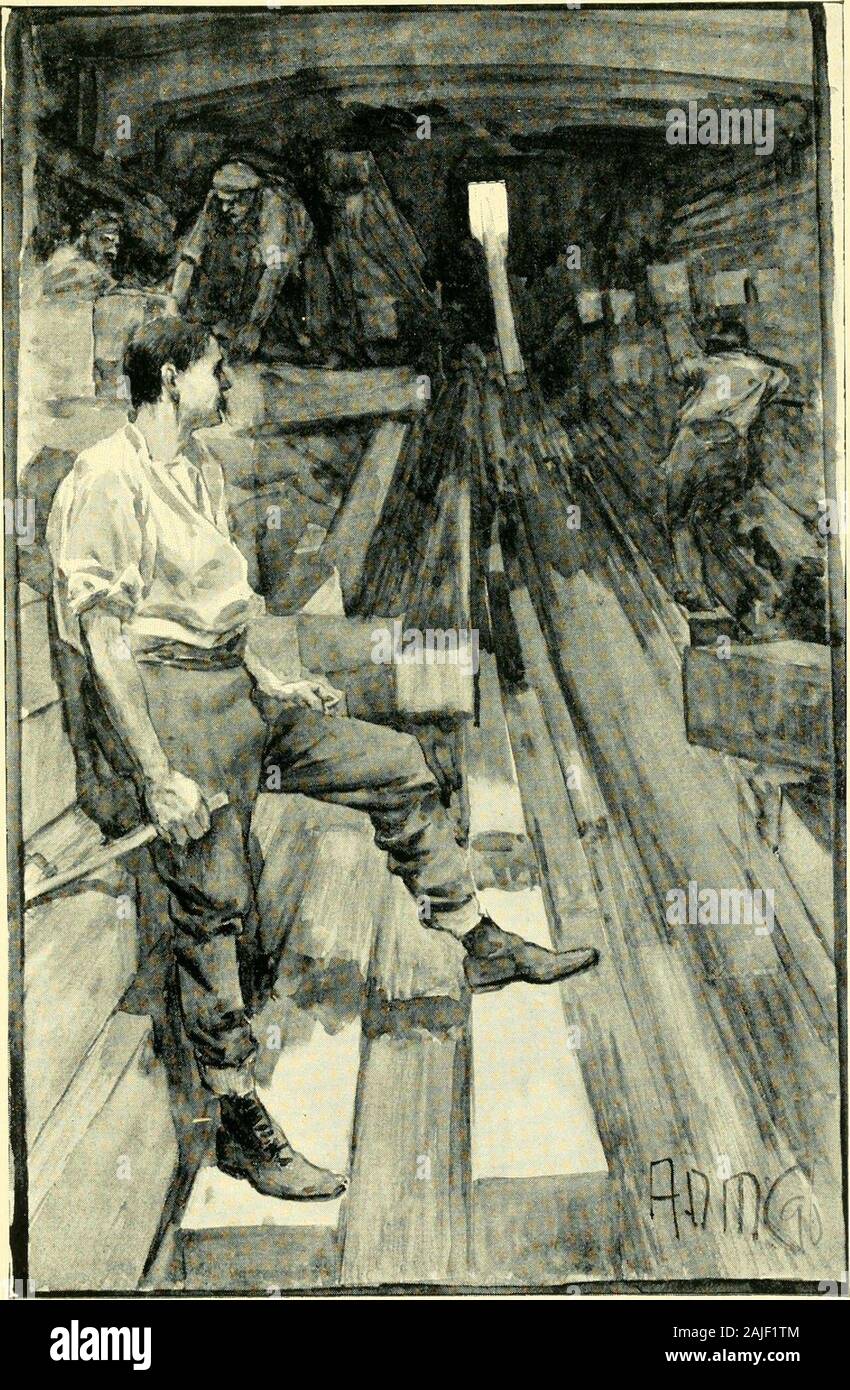The western Avernus; . o Iwas lucky enough to get a job in. This was a barque,the Coloma, of Portland, bound to China with lumberand returning Chinamen. I spoke to the mate at thegangway as he was tallying lumber down the chuteinto the bow-ports, and afterwards to the skipper, pre-senting him with my brothers certificate of discharge,as I had lost my own by shipping once before inEngland for New Zealand in a fit of pique—a loveaffair—and then backing out just before she sailed. Iwas told to come to work in the afternoon. I broughtdown my bundle, had dinner, and stowed lumber downin the hold wi

Image details
Contributor:
The Reading Room / Alamy Stock PhotoImage ID:
2AJF1TMFile size:
7.2 MB (769.8 KB Compressed download)Releases:
Model - no | Property - noDo I need a release?Dimensions:
1279 x 1955 px | 21.7 x 33.1 cm | 8.5 x 13 inches | 150dpiMore information:
This image is a public domain image, which means either that copyright has expired in the image or the copyright holder has waived their copyright. Alamy charges you a fee for access to the high resolution copy of the image.
This image could have imperfections as it’s either historical or reportage.
The western Avernus; . o Iwas lucky enough to get a job in. This was a barque, the Coloma, of Portland, bound to China with lumberand returning Chinamen. I spoke to the mate at thegangway as he was tallying lumber down the chuteinto the bow-ports, and afterwards to the skipper, pre-senting him with my brothers certificate of discharge, as I had lost my own by shipping once before inEngland for New Zealand in a fit of pique—a loveaffair—and then backing out just before she sailed. Iwas told to come to work in the afternoon. I broughtdown my bundle, had dinner, and stowed lumber downin the hold with my new companions. It was hardwork, lifting heavy planks, forty feet long, in a confinedspace, and driving them in with a sledge-hammer orusing another plank as a ram. Then sometimes lumberwould come down without much warning, through thecarelessness of the man on the look-out for it, and itwas necessary then to jump for ones life, or any rateto save ones legs. My shipmates were a mixed lot. One was a French-218. STOWING LUMBER. [to/acep. 218 Mount Tacoma Overhead man from France, not a Canadian Frenchman, whospoke very bad English, so bad that I had to makehim talk French slowly when I wanted to understandhim particularly, but at other times I would let himramble on unintelligibly, throwing in a few remarks atrandom to make him believe I was listening. Anotherwas an old Englishman, formerly sailing in the steamersfrom England to the West Coast of Africa: a littleman he was, whose boast was that he never got drunk, although he drank to excess. He told me manyhorrible and circumstantial accounts of fever-strickenships, and how once he made canvas shrouds foreighteen men on the voyage home, the only survivorsof passengers and crew being himself, the captain, twofiremen, and an engineer. There was a Newcastle-on-Tyne man, a Geordie, fair and blue-eyed and strongand broad-shouldered, a gay Lothario of seamen, and ababbler concerning bonnes fortunes, but a good-hearted, pleasan